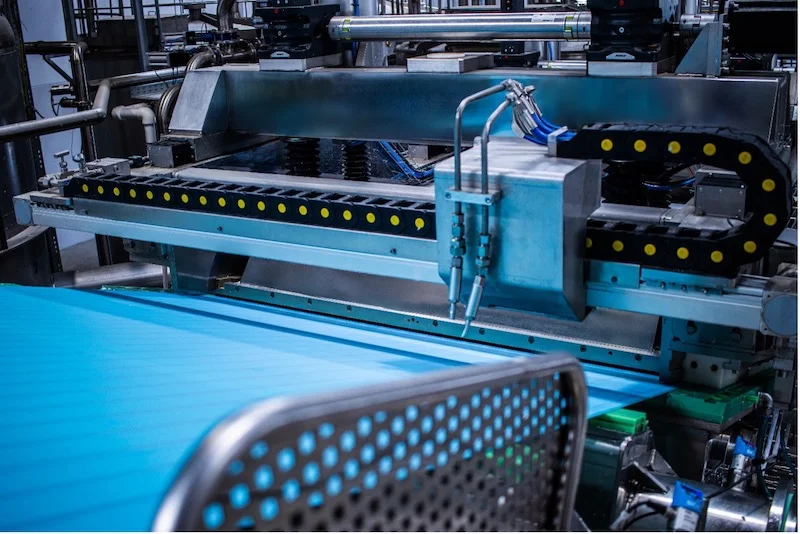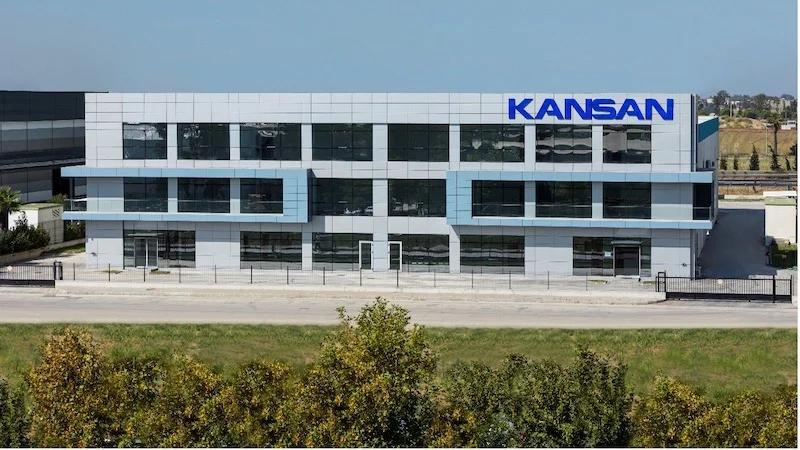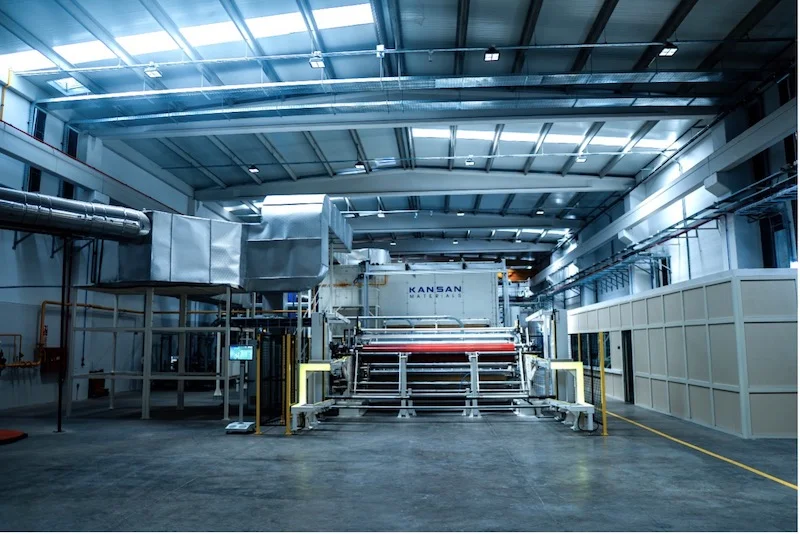The nonwoven industry has seen significant growth globally. What do you think are the main factors driving this demand?
The biggest factor is that the world population is constantly increasing. Developing countries, especially China, India and South Asian countries, are the biggest drivers of population growth. This increase means that certain products are used frequently and their demand never stops. The nonwoven industry is in a period when demand is highest, especially in the hygiene, medical, automotive and construction sectors, and the industry is constantly growing.
Another factor is that our world has gone through a major and serious pandemic. While its positive and negative effects are still continuing today; the demand for hygiene and medical products is increasing day by day. This increase will continue with a certain upward momentum every year. This situation provides and will provide growth in the nonwoven sector.
Kansan is recognised as a leader in wet wipe manufacturing solutions. Can you share the key innovations that have set Kansan apart in the industry?
As an internationally proven integrated wet wipe production line manufacturer, Kansan offers:
• Efficiency and high speed
• Fully automatic and flexible operations
• Less manpower and product waste
• Less maintenance
• Easy and quick change-over
• Advanced level of safety and hygiene

Kansan is, first and foremost, a technology and design group. In other words, the designs of all machines produced within the group and the competitive advantages related to them stem from Kansan’s general capability and technical superiority.
Kansan allocates a very serious portion of its total turnover to R&D activities. Kansan R&D Center has developed many machine concepts that have not been done before in Turkey and has introduced them to world markets, and is a pioneer and trend setter in its field.
In addition to our 30 years of experience in the paper, nonwoven, wet wipes sector, we have a wide customer network in various parts of the world. This obliges us to respond to various needs from different geographies and customer segments and provides us with the opportunity to produce suitable machine solutions.
Thanks to the demands of local, multinational or international large groups operating at different levels in our customer portfolio, we constantly strive to monitor, test and achieve better all critical parameters in terms of production such as automation, integration, work safety, production speed, machine operating efficiency, waste rates in all the machines we produce.
You recently developed new-generation nonwoven machinery for wetlaid and wet lace materials. Could you tell us more about this technology and its benefits for the hygiene industry?
In 2015, the first steps were taken to establish Kansan Materials, based on the increasing demand for sustainable and environmentally friendly raw materials in the fields of hygiene, baby care, and personal hygiene. We produce machines that use special wet laying and web-forming technologies to manufacture wetlaid nonwovens for hygiene, personal care, medical, filtration, construction, and insulation sectors. Wetlaid is a type of nonwoven material with flushable and biodegradable properties, consisting of pulp, cellulose or similar organic fibers.
With Wetlaid technology, it is possible to produce a raw material for the wet wipes sector that pollutes the environment to a minimum and, even if it does, decomposes in nature within months, as an alternative to the standard spunlace raw material that contains dense polyester fibers that lead to microfiber formation.
Flexibility and customisation are critical for manufacturers. How does Kansan address diverse customer needs while maintaining efficiency and quality?
Kansan is likely the most adaptable company in this industry when it comes to providing solutions and manufacturing lines according to the preferences of clients. We pay attention to our client’s needs and understand their feedback. Every machine we produce is redesigned with meticulous attention to detail, based on these specifications and demands.
We are aware that our clients from all over the world are requesting machines to deliver premium-quality products with mid or low-quality raw materials. As Kansan, we respond to these demands in the best way possible.
How does the nonwoven machinery sector in Turkey compare to global players in terms of innovation and competitiveness?
According to EDANA; In 2023 nonwoven production, average production in lines where different methods are used has decreased by 8.1% in all of Europe.
In Turkey, which has all exports, especially to the Middle East and Africa, meets the demand of the domestic market well and has increasing demand, average nonwoven production has increased by 2.1%. New lines were opened in Turkey in 2023 and 2024 and agreements were reached for line production, and there are equations for new line agreements to be made in 2025 and 2026. This shows that Turkey’s momentum will continue to increase.
What challenges do Turkish machinery manufacturers face, and how do companies like Kansan address them?
Turkish machinery manufacturers face global challenges such as competition, quality perception, and economic fluctuations. As Kansan, we overcome these hurdles by combining technology, quality, and adaptability. Through innovation, sustainability, and exceptional service, Kansan has positioned itself as a trusted, globally competitive brand in wet wipe, end of line and nonwoven manufacturing solutions.
Kansan has a presence in over 40 countries across 5 continents. Which regions are currently your biggest markets, and why?
Kansan is a company that is actively operating everywhere in the global market. You can find Kansan machines almost everywhere, from Russia to Finland, Indonesia to China, Korea to Peru, and South Africa to Mexico.
Among these are countries such as Germany, America, and Italy, which are very good at machines. Our exports correspond to 90% of our total turnover. Since there is an increasing trend in the use of sustainable raw materials especially in Europe, we aim to start with our current market and reach every point in the world.
With increasing competition globally, what strategies does Kansan employ to maintain its leadership in export markets?
In addition to standard machine production, we can also produce special design or concept machines, so our machine design processes are extremely meticulous. Considering both our production capabilities and the ease of use of our customers’ machines, we implement the most practical and low-cost production concepts without compromising quality.
In addition, our engineering and production teams constantly follow the developments in technology by following fairs and training programs around the world. We can quickly adapt the parts we think are appropriate and useful to our own system.
























